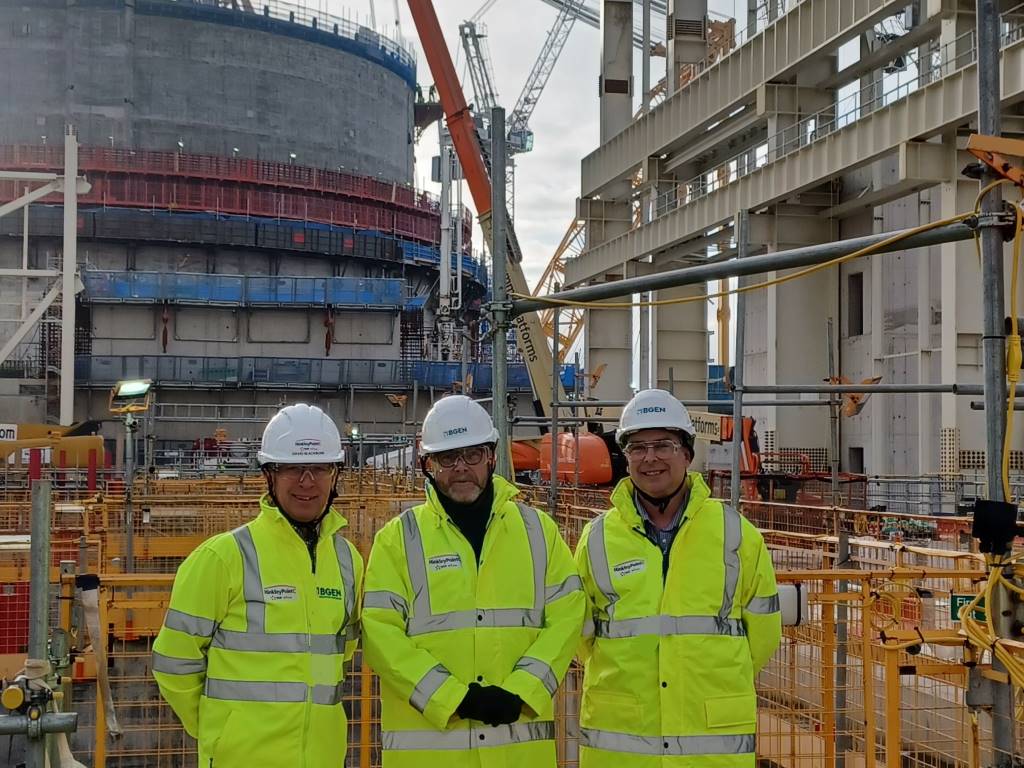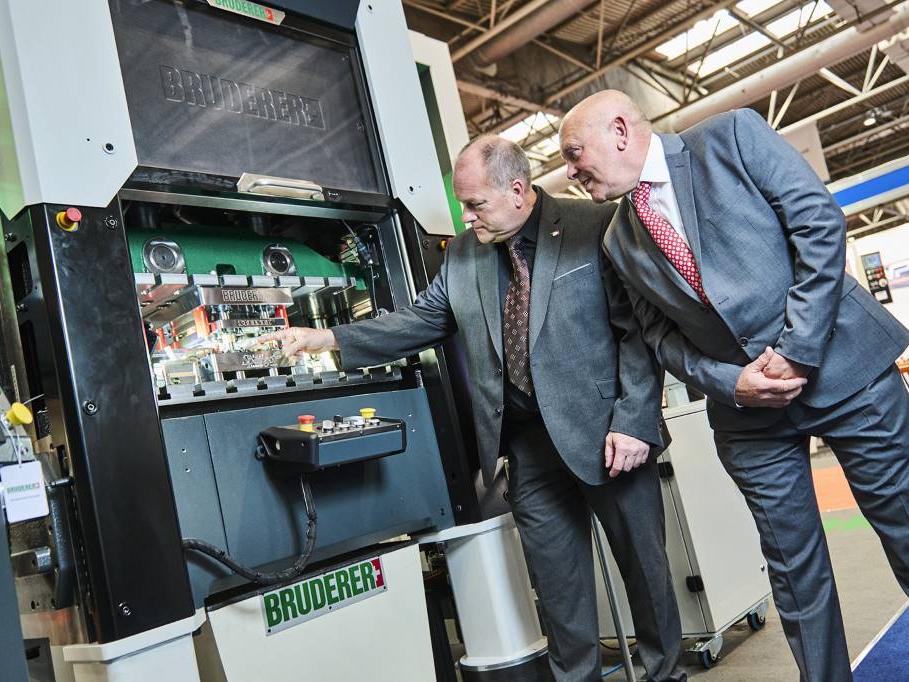Supply chain success
A recently commissioned, fully automated manufacturing facility for the machining of 105mm and 155mm artillery shells has made an early impact on the aims of the MASS contractual partnership...
A recently commissioned, fully automated manufacturing facility for the machining of 105mm and 155mm artillery shells has made an early impact on the aims of the MASS contractual partnership between BAE Systems and the UK MoD. MASS (Munitions Acquisition – the Supply Solution) aims to deliver increased supplies of ammunition to front line troops by modernising and ensuring sustainability of the UK munitions industry.
Although due to be relocated to a brand new £28 million facility in Washington, Co Durham, the recently installed manufacturing facility is currently operating at BAE Systems' Birtley plant which dates back to 1916. Operating alongside an existing manually operated facility, the new manufacturing cell removes operators from potentially hazardous areas, occupies a quarter of the space and requires four less operators per shift. According to BAE, product quality and capacity has also been enhanced significantly.
The overall system comprises four progressive separate robot loaded manufacturing cells capable of independent operation, and allows maintenance and retooling to be undertaken without stopping production. The system is designed to manufacture both the 105mm and 155mm shells with quick changeover routines embodied into the manufacturing processes.
The order was awarded by BAE to Mills CNC who took responsibility as the prime contractor for the complete project. A significant aspect was the tight delivery schedule required by BAE which was system pass off onsite within 12 months, which was achieved.
Cells one to three each have two Doosan Puma 400C CNC lathes, with cell four having a single Puma 400C. Each cell includes a Fanuc Robotics R2000iB/175 robot which loads the machines and a variety of peripheral equipment required to complete the process.
Shells are progressively machined in each cell, with transfer between cells managed by outputting machined parts onto pallet conveyors designed by Ewab Engineering Group for collection by the robot in the next cell. These link conveyors also provide minimum buffer storage to allow continuous production even when a machine is stopped for re-tooling.
Lean manufacturing processes are employed to identify waste within the system and, to ensure the system will run continuously with planned stoppages to individual machines.
On receipt of order Mills CNC contracted the system integration of equipment and communications to Fanuc Robotics UK. Jeff Robson, MASS transformation engineer for BAE Systems, Birtley, comments: “Machining the shells is the core process on this system so Mills, who had previously successfully developed similar automated systems within BAE Systems, was the natural selection for prime contractor. The effective operation of this system has been the result of a successful partnership between BAE Systems, Mills CNC and all the suppliers involved.
He continues: “Communications are facilitated through I/O at machine level with the Fanuc Profibus interface enabling significant volumes of data to be collected for OEE (Overall Equipment Effectiveness) calculations and display of system performance through a large central monitor positioned on the shopfloor.”
Advanced manufacturing software has allowed BAE Systems to develop and apply strict controls throughout the machining process, re-tooling, material supply and maintenance procedures. SMS messages and email prompts are activated by the system to specific team members to ensure that the required human intervention is made when needed.
The four Fanuc R-2000iB robots each have specially engineered grippers which handle the shell either on its OD or the fuse bore ID. Each cell has two way powered conveyors for periodic part inspection outside the working area of the cells.
Cells three and four both have marking systems developed by Pryor into which the cell robot positions and holds the shell as information, defined by the process, is applied to the outside of the shell. In addition, cell three involves a shell weighing operation which feeds back information to the Puma 400C control system and results in the correct amount of material being machined to maintain a consistent mass of each shell.
One cell includes an advanced robotic flaw detect inspection system using Eddy current and phased array technologies supplied by NDT into which the cell robot loads and unloads machined shells. In another cell the robot picks and loads a copper driving band to a pre-machined groove which is then pressed to fit in a two press operation designed by Orwin.
Linear rails are employed in two cells to provide the respective robots with a greater working range to service the machines and ancillary equipment involved in the cell processes.
Mr Robson continues: “Operator uptake and acceptance of the system has been excellent – we have a saying which we stick to when engineering any process, ‘Simple's best, simple's easy and simple's understood' – and this works for us as we avoid unnecessary complications. Operators can take a process, monitor performance and invariably improve upon it using a PDCA (Plan, Do, Check, Act) philosophy.
“We are due to start to move to the new facility during September and this system is already effectively contributing to the efficient cost down manufacture of munitions for the MoD.”
Mills CNC
www.millscnc.co.uk














